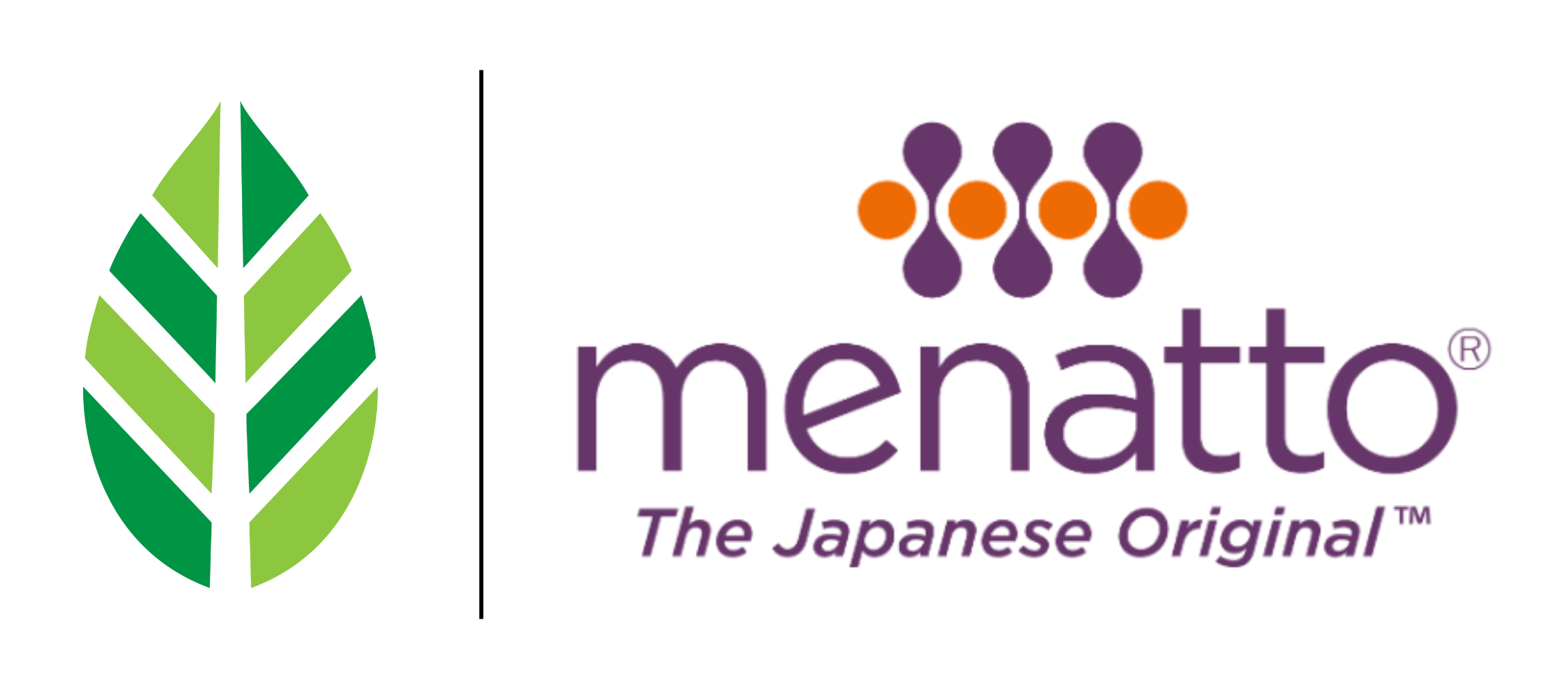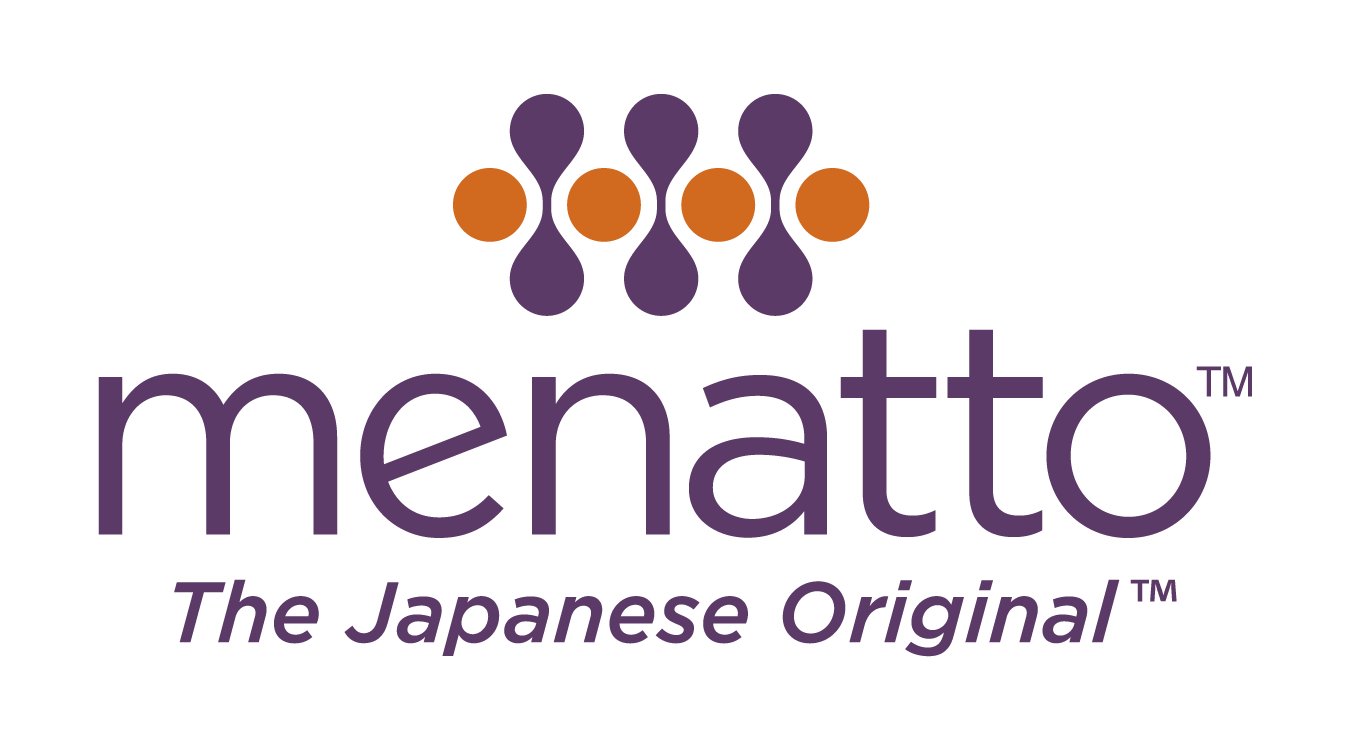-
Ingredient SolutionsQuickly narrow your search. Browse products in our sortable catalog. View Catalog
-
ApplicationsQuickly narrow your search. Browse products in our sortable catalog. View Catalog
-
ResourcesRecently Posted
-
PLT People & Planet
-
About
Our international network, passionate team of experts and extensive industry knowledge is what sets us apart.
 Seth FlowermanCEO
Seth FlowermanCEO
menatto® Vitamin K2
OVERVIEW
menatto® Vitamin K2 (MK-7) is the world’s premier source of Vitamin K2 – sustainable, clean-label, featuring an unparalleled clinical support package.

10 Studies
menatto has been in clinical trials on bioavailability, bone health, heart health and more.

20+ Years
menatto was ‘the original’ Vitamin K2 supplement source – developed in 1997.

>7 Times
A PK study showed that menatto achieved much higher blood levels of Vitamin K than synthetic Vitamin K1.

100% Traceable
Made with a vertically-integrated process, menatto is controlled from farm to table.
FEATURES & BENEFITS
Ten clinical studies |
|
Products of fermentation |
|
Proven bioavailability |
|
Fully traceable |
|
Versatile in formulation |
|
Oil and powder forms |

CERTIFICATIONS
GLUTEN-FREE
NON-GMO
Vitamin K2 (MK-7) from a Much-loved Food
menatto Vitamin K2 made via a natural fermentation process using a bacterial strain of Bacillus subtilis isolated from the traditional fermented Japanese food natto.
Fermented from Natto
Soybeans are transformed into natto by being steamed and then fermented with natto-kin (a type of bacteria). This process produces a special savory taste.

More Bioavailable
The MK-7 form of vitamin K2 is the most bioavailable form of Vitamin K.
Rhodiola rosea
Rhodiola rosea is a plant native to remote Arctic climates in Asia, Europe and North America.

Exciting Phytochemistry
The root of the plant contains around 140 chemical compounds including phenols, rosavin, rosarin, salidroside and more.
Detail 1
Kale chips cold-pressed put a bird on it mumblecore kogi brooklyn farm-to-table blue bottle yuccie authentic kombucha migas. Literally tilde tacos paleo.

Detail 2
Kale chips cold-pressed put a bird on it mumblecore kogi brooklyn farm-to-table blue bottle yuccie authentic kombucha migas. Literally tilde tacos paleo.
RESEARCH
menatto Vitamin K2 has been the subject of ten human clinical studies on the actual article of commerce – more than any other Vitamin K2 on the market.
Numerous studies have shown that menatto is more efficacious than other forms of Vitamin K in elevating plasma Vitamin K levels.
Post-menopausal woman and bone health
A 3-year, randomized, double-blind, placebo-controlled study of post-menopausal women found that supplementing with low-dose menatto Vitamin K2 helped bind calcium to bones, supporting healthy bone mineral density.* menatto significantly improved vitamin K status compared to placebo and helped support bone mineral density (BMD) and bone strength.*
Knapen MHJ, et al. Osteoporos Int. 2013 Sep;24(9):2499-507.
Bone health for middle-aged men and women
Ninety-four participants with an average age of 52.4 were randomly assigned to take either 180 mcg of menatto per day or placebo for 1 year. They were advised to take two other nutrients — vitamin D and calcium since this trio works together to support bone health.* Researchers followed up at 2, 6, and 12 months and took measurements of bone mineral density at the lumbar spine and the femoral neck. menatto supported bone mineral density in the lumbar spine and supported bone mineral content in the femoral neck, which is an indicator of bone strength.
*Forli L, et al. Transplantation. 2010 Feb 27;89(4):458-64.
Calcium metabolism in children
A randomized, double-blind, placebo-controlled study of pre-pubescent children found that menatto vitamin K2 effectively raised blood levels of vitamin K2 compared to placebo, and helped ensure the proper level of carboxylated osteocalcin, a protein that regulates healthy bone formation.
*van Summeren MJH, et al. Br J Nutr. 2009 Oct;102(8):1171-78.
Supporting health blood vessel elasticity
A 3-year, randomized, double-blind, placebo-controlled study of healthy post-menopausal women found that three years of supplementation with menatto supported healthy blood vessel elasticity by helping maintain the right type of matrix Gla protein in the blood vessel wall.* This action may support healthy blood flow, contributing to cardiovascular health.
*Knapen MHJ, et al. Thromb Haemost. 2015 May;113(5):1135-44.
***The research cited above was conducted with Vitamin K2 produced by J-Oil Mills, which is currently marketed under the menatto® brand name. Neither J-Oil Mills nor PLT Health Solutions sponsored or participated in the funding of these studies.
CLINICAL HIGHLIGHTS
Clinical Study: menatto vitamin K2 (MK7) results in higher blood levels than vitamin K1
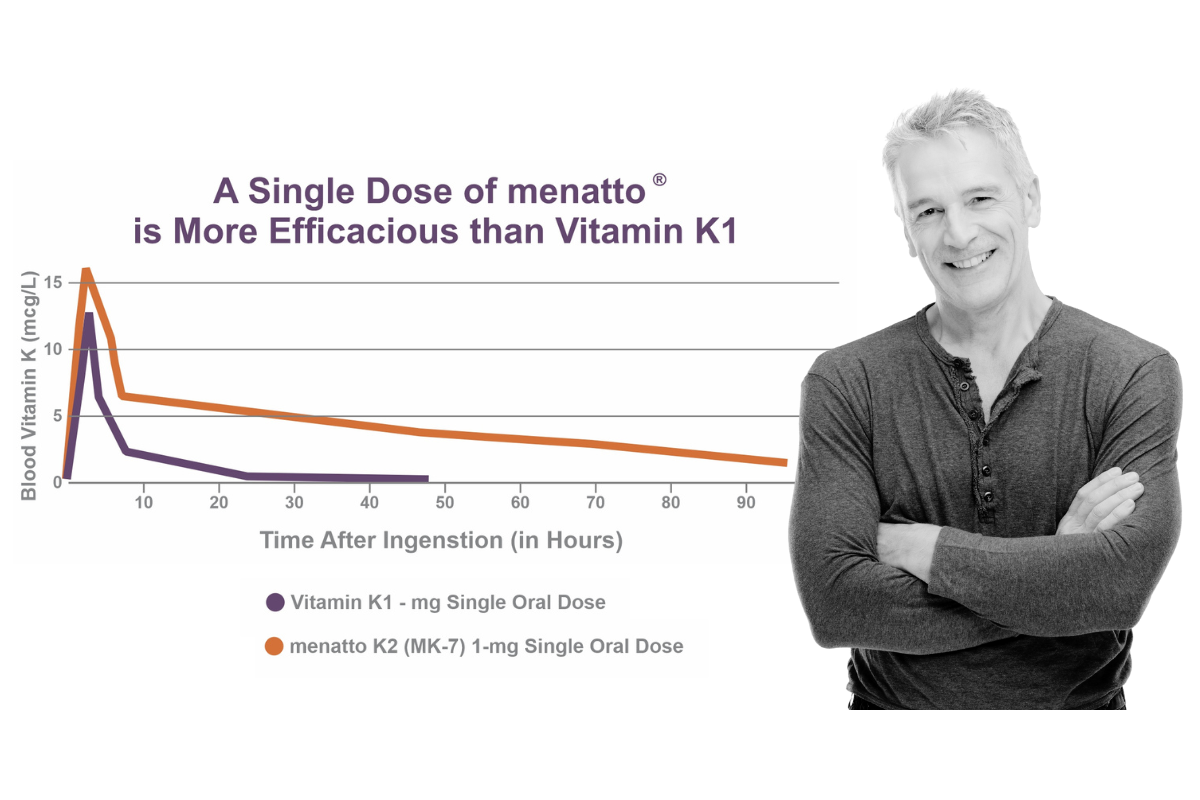
In a 4-part pharmacokinetic study on blood levels and stability of Vitamin K sources, taking menatto™ vitamin K2 (MK7) resulted in more stable and higher blood levels of vitamin K (7-8 fold higher) than vitamin K1. In addition, menatto supported the carboxylation of osteocalcin, a protein that helps calcium bind to bone and thus keeps bones strong.
Schurgers LJ, Teunissen KJ, Hamulyák K, Knapen MH, Vik H, Vermeer C. Vitamin K-containing dietary supplements: comparison of synthetic vitamin K1 and natto-derived menaquinone-7. Blood. 2007;109(8):3279-3283. doi:10.1182/blood-2006-08-040709

Clinical Study: Post-menopausal women and bone health
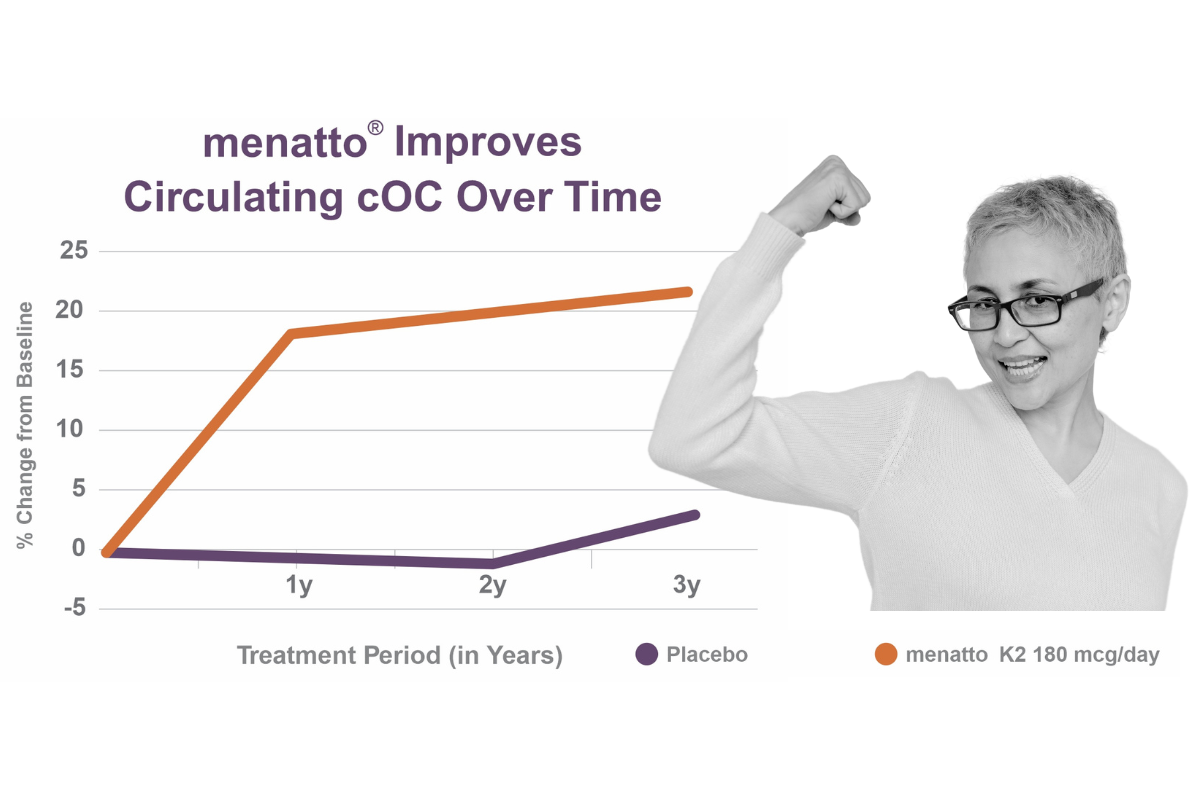
A 3-year, randomized, double-blind, placebo-controlled study of post-menopausal women found that supplementing with low-dose menatto Vitamin K2 helped bind calcium to bones, supporting healthy bone mineral density.* menatto significantly improved vitamin K status compared to placebo and helped support bone mineral density (BMD) and bone strength.
* Knapen MHJ, et al. Osteoporos Int. 2013 Sep;24(9):2499-507.

MARKET OPPORTUNITIES
Bone Health
Vitamin K2 has shown to encourage the development of healthy bones in children and the maintenance of healthy bones in adults.
Cardiovascular Health
Vitamin K2 serves a key role in cardiovascular health through regulation of calcium homeostasis.
HEALTHY AGING
Affecting both cardiovascular health and bone health, menatto Vitamin K2 is a perfect ingredient for anti-aging formulas.
APPLICATIONS

CHEWS

CONFECTIONARY
EFFERVESCENTS

GUMMIES

POWDERS

RTDS/SHOTS

SOFT GELS

STICK PACKS

TABLETS
ORIGIN STORY
Vitamin K2 from natto
The starting point for menatto is the traditional Japanese food natto. Why? Because it’s the richest food source of Vitamin K2 on the planet. When and how natto originated is open to debate.

Dating Back to the 11th Century in Japan
In one story, 11th century Japanese soldiers were boiling soybeans and were attacked. The troops retreated – leaving their soybeans behind – and returned several days later. In their absence, the soldiers’ soybeans had fermented naturally, and they found they liked the taste.

Natto: Made According to Tradition
Natto is made from soybeans, typically natto soybeans. These beans are washed, soaked in water and steamed. The beans are then mixed with the bacterium Bacillus subtilis, known as natto-kin in Japanese. Afterward, it is cooled, then aged in a refrigerator for up to one week.

Fermented Vitamin K2
Following the fermentation process, Vitamin K2 is extracted using pure sunflower oil and the K2-infused oil undergoes water refining to remove impurities – followed by a deodorization process using distillation. This material is blended with pure sunflower oil.

Fully Traceable Production
As a vertically integrated company, J-Oil Mills can trace all phases of menatto™ production, from procurement of raw materials to manufacturing to distribution, meeting our customers’ and end consumers’ need for traceability.

QUALITY
Transparent, Certified Quality
PLT innovation partner J-Oils Mills takes meticulous care to ensure the quality of its products. menatto is manufactured in its own third-party GMP-certified manufacturing plant in Shizuoka, Japan, where we meet or exceed current standards for good manufacturing practices. The facility is also ISO 22000-certified to ensure safe food management. Additionally, menatto has achieved self-affirmed GRAS status in the United States and novel food status in the European Union.
The process for making menatto starts with natto, the traditional fermented Japanese food that is naturally rich in vitamin K (as K2). In fact, natto contains 500 times more vitamin K2(MK-7) than the next-highest food source.
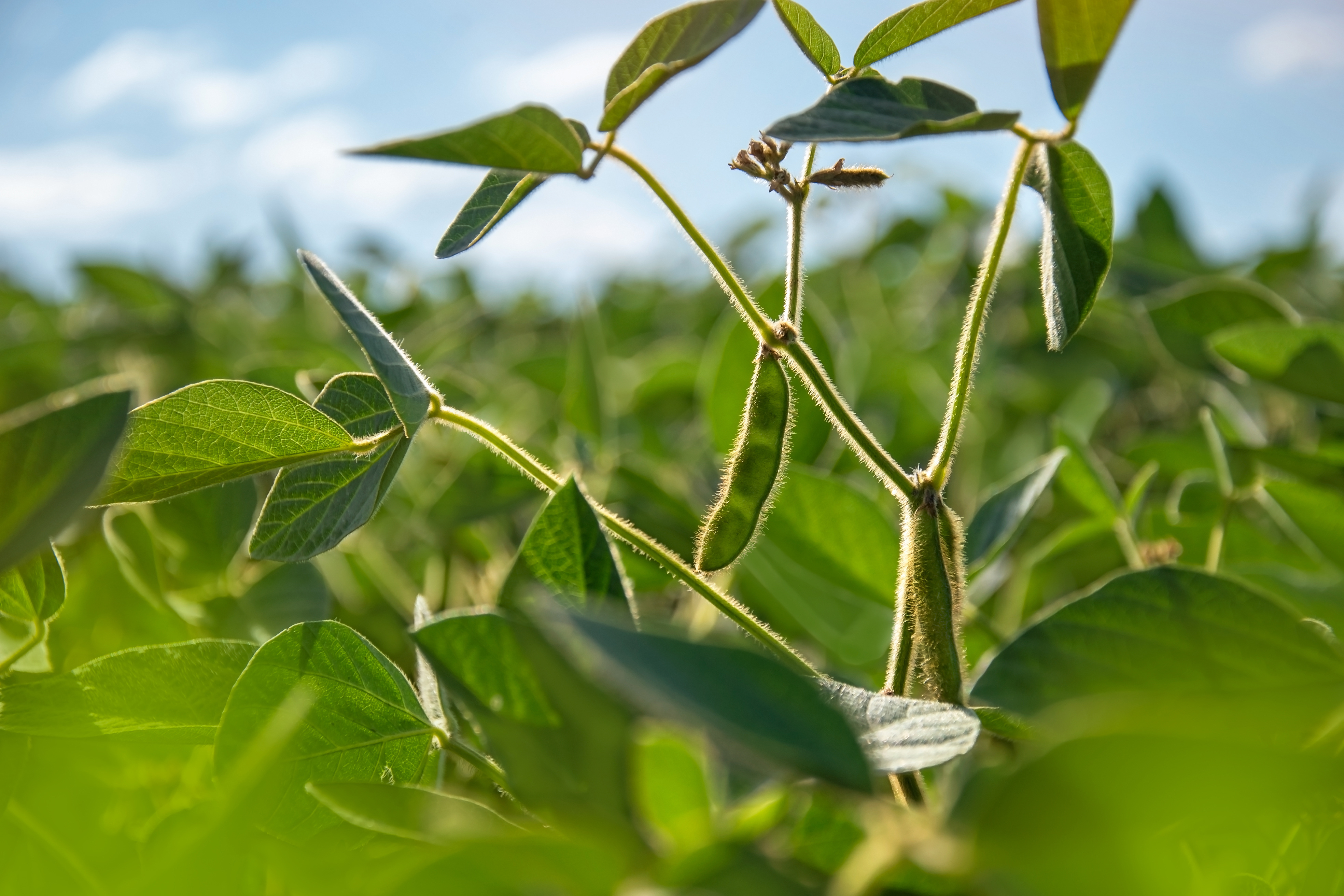
• Isolation
B. subtilis natto, a probiotic strain of bacteria, is isolated from natto.
• Inoculation
B. subtilis natto is inoculated intoa sterilized plant-based media.
• Fermentation
The B. subtilis natto, goes to work fermenting the plant-based media in a controlled-temperature environment. During the fermentation process, vitamin K2 is produced.
• Extraction
Our K2 is extracted with pure sunflower oil.
• Purification
The K2-infused oil undergoes water refining to remove impurities.
• Deodorization
The odoriferous components of the oil are removed through a unique distillation process, rendering it tasteless and odorless.
• Blending
To produce menatto® vitamin K2 MK-7 Oil 1500, the refined, deodorized oil is blended with pure sunflower oil until concentrations facilitate the formulation process, after which it is micro-filtrated.
• Spray-drying
To produce menatto® vitamin K2 MK-7 Powder 1000/2000, the refined, deodorized oil is emulsified with natural excipients, powdered, and then filtrated.
INSIGHTS
Background on Vitamin K
MK-7 from PLT is menaquinone-7, a form of Vitamin K2. PLT MK-7 There are two broad categories of Vitamin K used in supplements. Vitamin K1 (phylloquinone or phytonadione) is the form found in plants, such as leafy green vegetables. Vitamin K2 (menaquinone, such as MK-4 and MK-7) is found in animals and certain fermented foods. Menaquinones naturally have greater bioavailability. At least 50-60% of the circulating Vitamin K in the body is in the form of K2. The MK-7 form of vitamin K2 is the most bioavailable form of Vitamin K. This was established by research done specifically on J-Oil Mills’ MK-7. Human clinical trials with menatto have demonstrated higher bioavailability than MK-4 and more than seven times the bioavailability of vitamin K1, making menatto the most bioavailable vitamin K commercially available. Another study demonstrated that menatto is bioavailable in diverse delivery systems.
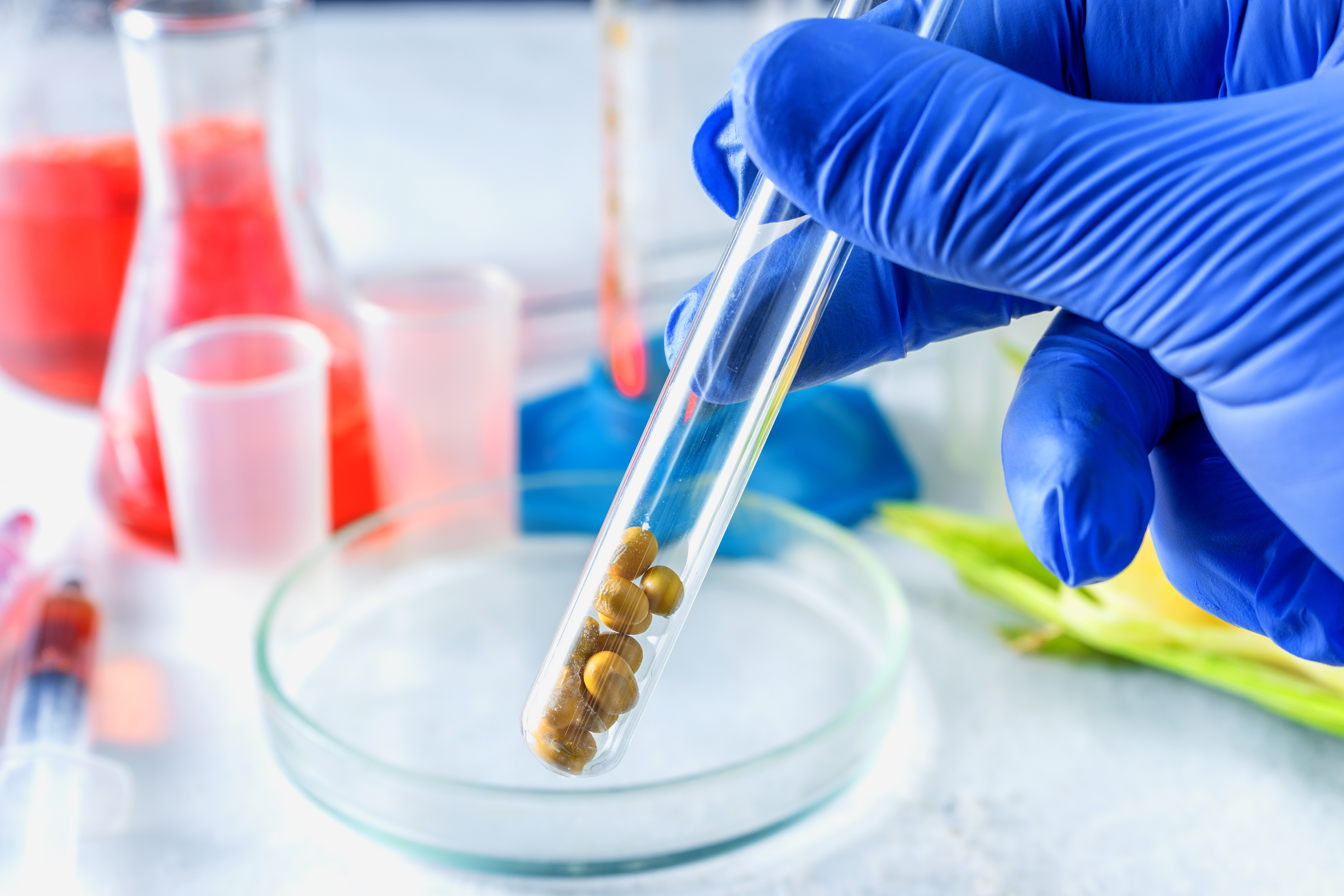
Vitamin K and Vitamin D
When it comes to calcium metabolism, vitamins D and K work together. Both are fat-soluble vitamins that play important roles in the body. Vitamin D promotes the production of vitamin K-dependent proteins, which require vitamin K for carboxylation in order to function properly. Some clinical studies have shown that supplementation with both at the same time improves health outcomes. Consumer products featuring both are increasingly popular in the market – particularly in products targeted to post-menopausal women.
PLT Health Solutions offers one of the most innovative, consumer-friendly Vitamin D solutions on the market today – Earthlight® Whole Food Vitamin D.
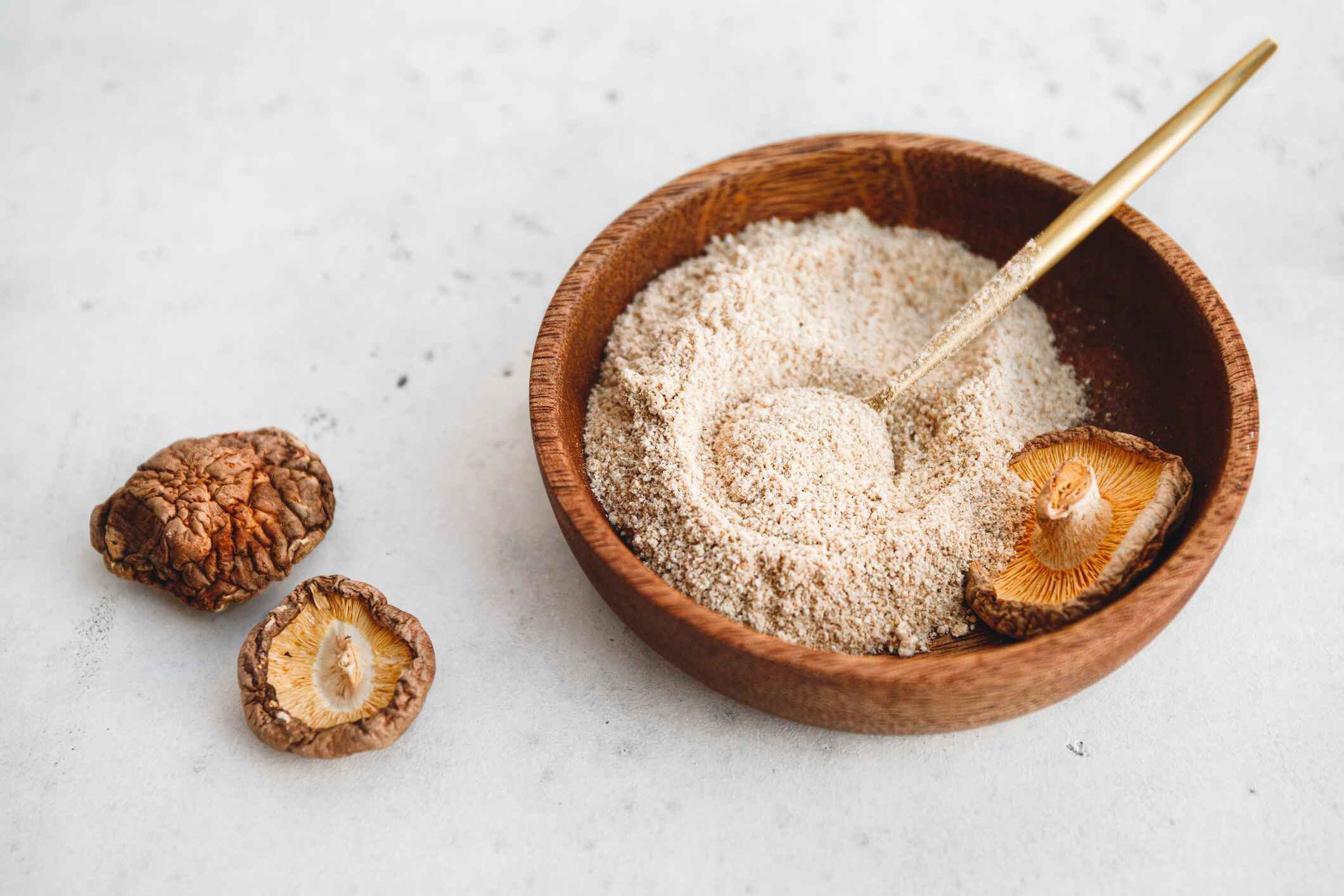

“menatto Vitamin K2 is the most clinically studied Vitamin K2 on the planet today.”
Sid Hulse, Vice President, Product Development, PLT Health Solutions
RESOURCES
.png)
.png)
.png)
.png)
.png)
.png)
.png)
.png)
.png)
.png)







.png)
Talk to us about how you can incorporate Vitamin K2 into your products
menatto has the quality and the clinical studies that can help you create great products and build trust with consumers.
- Expertise
- Ingredient Solutions
- All
- Animal Health & Wellness
- Beauty from Within
- Joint & Bone
- Cardiovascular
- Cognitive Performance
- Energy
- Functional Foods & Beverages
- Healthy Aging & Longevity
- Hydration+
- Immune & Respiratory Health
- Men’s Health
- Muscle Health
- Pain & Mobility
- Plant-Based Nutrition
- Sexual Health
- Sleep
- Sports & Active Nutrition
- Stress & Mood
- Weight Management
- Women’s Health
- Applications
- Resources
- PLT People & Planet
- About
These products are not intended to diagnose, treat, cure or prevent disease. This website is for informational purposes only.














